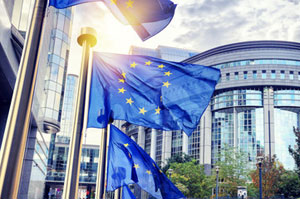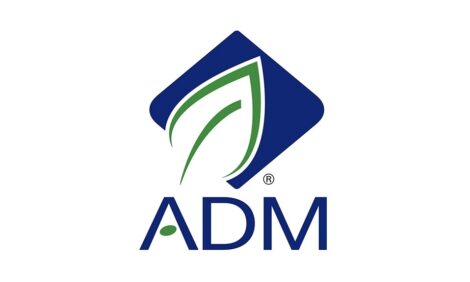



EU agrees to wide-ranging climate law to speed emissions cuts
The European Union clinched a deal on 21 April on a landmark climate change law that puts new, tougher greenhouse gas emissions targets at the heart of all EU policymaking.Reuters reports that the deal arrives just in time for a summit of world leaders hosted by the US government on 22 and 23 April, where the EU and other global powers will promote their pledges to protect the planet.


The European climate law will guide the bloc's regulations in the coming decades. It includes a target to reduce net emissions at least 55% by the end of the decade from 1990 levels - lower than the 60% goal sought by the European Parliament - to steer it towards reaching zero net emissions by 2050.
If adopted globally, the net zero by 2050 pathway would limit global temperature increases to 1.5 degrees above pre-industrial levels and avoid the worst impacts of climate change.
After months of wrangling and a full night of negotiations from Tuesday, negotiators representing the European Parliament and the 27 EU governments finished the law. The deal still needs formal approval from parliament and national governments.
"This is a landmark moment for the EU," the bloc's climate policy chief Frans Timmermans said in a statement. "Today's agreement also reinforces our global position as a leader in tackling the climate crisis."
A handful of countries, including Britain and New Zealand, have enshrined net zero emissions goals into law, but the 27-country EU is the biggest emitter to do so.
The target to cut EU-wide net emissions at least 55% by 2030, from 1990 levels, replaces a previous goal of a cut of at least 40%. By 2019, EU emissions were already 24% lower than in 1990.
EU lawmakers had wanted to go further to 60% by 2030. Green campaigners said the cut should be 65%.
"I'm satisfied today," said Swedish Social Democrat Jytte Guteland, the European Parliament's lead negotiator. "The most important thing was to make sure that science would be more integrated in the EU law."


The 2030 target sets the stage for a major package of EU regulations due in June to cut emissions, including proposals to revamp the EU carbon market, tougher CO2 standards for cars, and a border tariff to impose CO2 costs on imports of polluting goods.
Negotiators agreed to limit the amount of emissions removals that can be counted towards the 2030 target, to 225 million tonnes of CO2 equivalent.
That aims to ensure the goal is met by cutting emissions from polluting sectors, rather than relying on removing CO2 from the atmosphere through carbon-absorbing forests.
The law requires Brussels to create an independent body of scientific experts to advise on climate policies, plus a greenhouse gas budget laying out the total emissions the EU can produce from 2030-2050, without thwarting its climate goals.
Response from EU farming and forestry unions
A statement from Copa and Cogeca say that the organization welcomes the provisional agreement.
“European farmers and agri-cooperatives support the agreement’s objective on net greenhouse gas reduction. We regard the carbon farming initiative as a key element of delivering carbon removals via market-based carbon-crediting schemes. The impacts of climate change take an ever-increasing toll on the agricultural sector and farming livelihoods, therefore a strong focus on climate change adaptation is particularly welcomed.
“Besides farming, forestry will play a major role in climate change mitigation and adaptation. The role of actively managed forests is key in substituting fossil-based materials and energy in the carbon storage of harvested wood products. Promoting the use of forests mainly as carbon sinks is not an appropriate measure to combat climate change but rather a high-risk strategy. Therefore, it is essential that the entire forest cycle and the numerous ecological and socio-economic services that forests provide be considered.
“The provisional agreement projects a promising ground for fair cross-sectorial cooperation, where all sectors and production methods must be able to make their contribution. Farmers and agri-cooperatives stand ready to contribute while ensuring food security under Article 2.1(b) of the Paris Agreement.
“We regard the upcoming ‘Fit to 55’ package and the corresponding overview of the EU climate legislation as an opportunity to design an enabling policy framework.”









